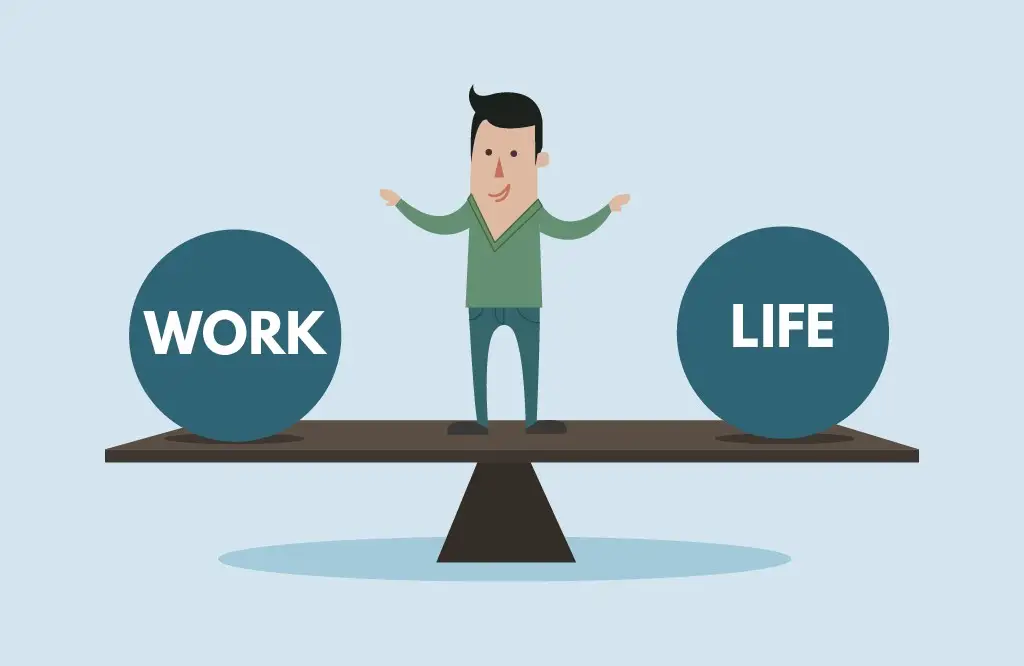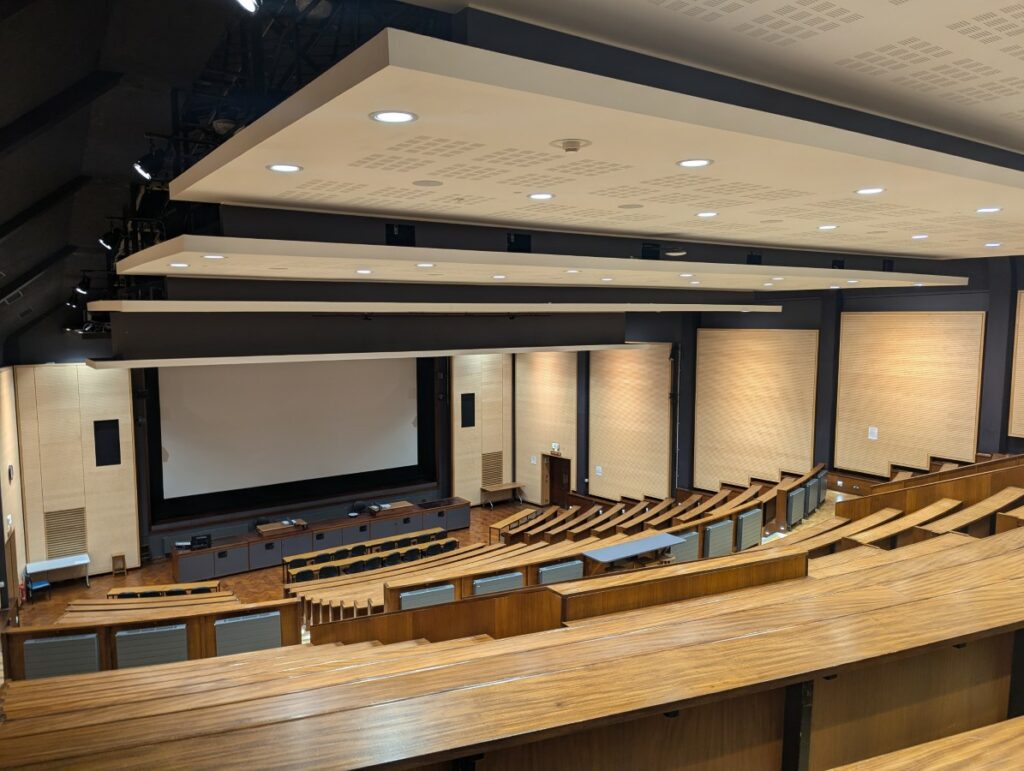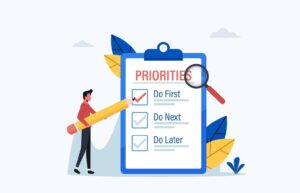Dealing with the Natsci Workload
(5 mins read) Dhruv Shenai, President: This term, the Natsci lifestyle got really tough for a lot of people and for those starting their Cambridge journey, Michaelmas of first year, it can be especially tough to get orientated. I wanted to write quickly about my experience with the Natsci workload and how I manage it.

I’m going to have to start with a reality check: the Natsci course is inherently designed for science enthusiasts.
At least in my experience, there is a phenomenal difference between A level science and all years at University (this is perhaps obvious). A lot of Natscis at Cambridge come here with a knowledge greater than A-level ability, for whatever reason that is e.g. different education system, Olympiads, reading of university-level textbooks etc. This immediately sets the mood for the year.

^ Mood for the year (BMS LT, chem dept)
Those who are already somewhat familiar on the concepts, can more accurately take in the finer details of the content and may be more likely to do better in exams. It’s also usually the finer details that are tested. Indeed, the course is tailored to the enthusiastic and proactive student and it can at times leave behind the struggling (which is annoying because usually those who are struggling have good reasons to be e.g. health issues, family / personal issues etc).
On the other hand, those who, through no fault of their own, were not exposed to the material beforehand, may be overwhelmed. *(comment on this idea at the end, please do read after the rest of this)
So for all the smart people, very capable of dealing with the Natsci lifestyle, who were perhaps tricked by A-levels, willingly or unwillingly, into not delving further into the complexity of the University level material may have a steep learning curve once they arrive. However, it is still possible to do really well and it’s never over.

The key to doing well in Tripos, I believe, is to have a tennis player mentality. Tennis players have to play many points and a lot of them will be lost. If your mentality is ‘I lost a point, or a game, or even a set; it’s over now’ you may be making your Tripos-life hard. Not every piece of content can be perfected or even understood during term time. Sometimes the concept needs extra time: the way it was taught sucked so perhaps you need a different teaching method, or you just need to do some Qs on it and then you’ll be fine. There’s always a solution but it takes time which you just don’t have access to during term. Using holiday periods and spare time to keep written note of all the things you need to look back on and then slowly going through them is the way to do it. And of course, believing you can win the match, and the points when it matters, is how you manifest success throughout the course of your degree.

The term is designed to be intensive, followed by a longer break. I guess in part because it allows researchers who lecture during term time, to focus on their research. It also gives us the unique opportunity to stop studying and chill (and then start again anyway because we hate ourselves / want to do well to get a piece of paper with a mark on it). But these holidays are genuinely a godsend; though it can sometimes go quickly, it’s always therapeutic and needed. Holidays are the perfect chance to cleanse your psyche off the pains of the term and reset your mind for the next one. And some well placed studying can be the difference between a stressful Easter term and a less stressful Easter term 😉

Q: But is the workload always meant to be this much?
A: Well, the workload can sometimes be very overwhelming. The aim of lectures is to teach the content. It doesn’t necessarily mean it’s taught well. So often, you need more time to digest the content. That requires work outside of contact hours, time you may not have, since you’re juggling your social life, societies, clubs etc.
As president of Darwin society, my time is really split thin. Sorting out events is a time-sink and can at times be stressful. It is a rewarding job though and has been very enjoyable. However, the admin work, coupled with the maintenance of my social life: friendships, relationships, family is a difficult balance. I’m not going to say I have a brilliant hold on it, but if I wasn’t able to manage, I wouldn’t be doing it.
And that’s kind of the key. You need to prioritise well, and choose the battles you want to win. At Cambridge, if you reflect, you can easily tell where your time is going. If you think, ‘Hang on, I’m not doing enough work. Maybe I need to start saying no to some events so I can get more done…’ Then yes, great reflection. Do it. If you think ‘Hang on, I can’t remember the last time I haven’t felt stressed.’ Then yes, you’re right. Do something about it. If your work is urgent, you’re going to have to do it, but quickly message a friend to organise some kind of meetup in the future or plan a time for you to rest. Do something for yourself like go for a walk, play some music, exercise, eat some nice (home?) food, yap to your family or friends. Just don’t give up on your health. The natsci tripos also becomes part of your health; if tripos isn’t going well, you’re probably feeling it. So please, look after yourself and the work in equal amounts.

Overall, the workload is tough, but the time you spent gruelling over work is not going to be what you remember about Cambridge 20 years down the line. It’s the friends you make, the memories, the laughs and the fun that you will remember. Keeping that in mind, I find it prudent to enjoy the time I have in Cambridge foremost. I can only encourage you to do the same.
Whether you’re a prospective or current student, life at Cambridge can be very enjoyable if you lead your life on your terms. The Natsci degree is tough, but it lays a great foundation in many sciences and allows you to derive information from a range of subjects. Also do remember that it is Cambridge, so if you’re finding it hard, that’s because it’s designed that way.
If you’re struggling with anything, please do reach out to your friends and family and inform your tutor, DoS, the nurse when things get serious. It’s a team effort and it’s the university’s obligation to try and look after you as much as you should look after yourself.
* I recognise that this isn’t wholly applicable to everyone. Some people who have never seen any of the material in tripos may really enjoy the way it’s taught and pick it up really easily. Equally, some with experience of one topic, may still struggle with another. Likewise, all this talk of struggling and picking your battles, may be completely irrelevant for someone very competent who doesn’t find Tripos hard. However, I think realising that there are different levels and not comparing yourself to others is important. Also, I really don’t want to bring anyone down in any way by these statements. My whole point is that you don’t need to know everything before coming, I definitely didn’t. So please don’t feel disadvantaged: ‘Oh I didn’t do Olympiad’ or ‘Oh I didn’t know anything about this bit of Chemistry but everyone around me seems to’. Instead, justify your position and say ‘I may not have done xyz but I still deserve to be here. I still sit the same exam, so I can still do just as well. Use everything around you to try and empower yourself. Also, things I have said are not necessarily true; perhaps what I said isn’t relevant to you. So please don’t take this as fact but rather as an opinion. Each person is different and you will make your own journey here at Cambridge. Finally, please do reach out to me if you want to chat about this stuff further. Take care!
Darwin loves you,
Dhruv
